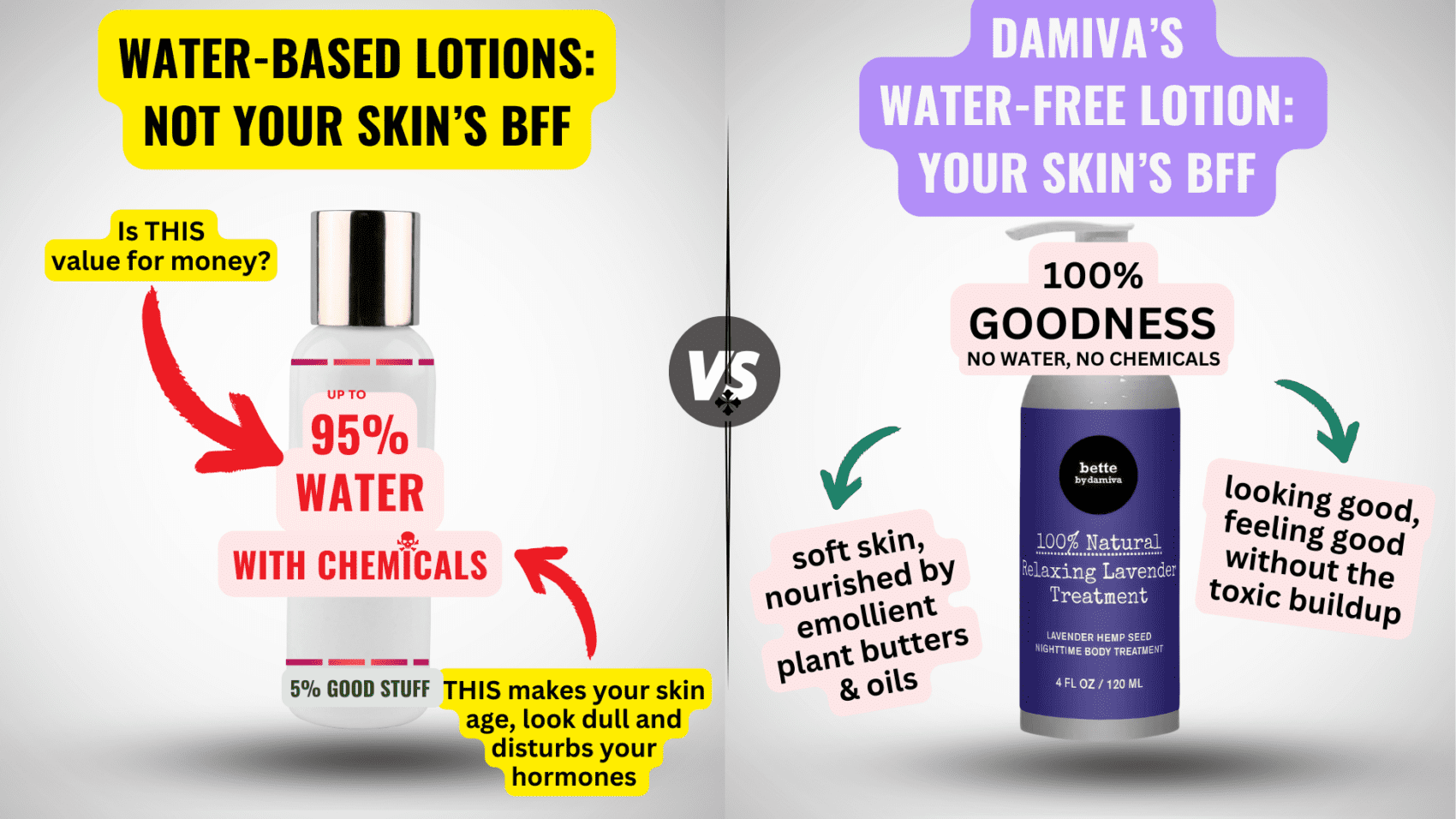Sex as a Natural Elixir
Sex is not just a source of pleasure and a means of procreation; it also has numerous health benefits that contribute to a longer and healthier life. Engaging in regular sexual activity is akin to discovering a natural elixir that can enhance both physical and emotional well-being. Dr. Hilda Hutcherson, a clinical professor of obstetrics and gynecology at Columbia University, emphasizes that sex can make us physically healthier, fostering intimacy and relaxation while activating pleasure centers in the brain. These benefits are not limited to the moments of sexual activity but can have lasting effects on our overall health.
Historical Perspective on Sexual Health
Throughout history, the connection between sexual activity and health has been recognized in various cultures. Ancient civilizations often celebrated sexuality as a vital component of life, with many believing in its healing and rejuvenating properties. In modern times, scientific research has begun to validate these age-old beliefs, demonstrating that an active sex life can contribute to pain management, stress relief, and immune system support, among other benefits. This historical perspective underscores the enduring significance of sexual health as a key factor in holistic well-being.
Purpose of the Article and Methodology
The purpose of this article is to delve into the myriad ways in which sex can be good for you, exploring the secret to a longer, healthier life through the lens of scientific evidence and expert insights. To achieve this, we will examine a range of studies and research findings that shed light on the health benefits of sexual activity. Our methodology includes a comprehensive review of literature from medical journals, interviews with health professionals, and analysis of case studies that collectively illustrate the positive impact of sex on health. By the end of this article, readers will have a clearer understanding of how embracing their sexuality can contribute to overall health and vitality.
Sex as a Natural Pain Management Tool
The Role of Oxytocin and Endorphins
During sexual activity, the body releases a symphony of hormones, among which oxytocin and endorphins are key players in the modulation of pain. Oxytocin, often dubbed the “love hormone,” not only fosters emotional bonds but also has analgesic effects. It is released in abundance during orgasm and has been shown to reduce pain perception. Endorphins, our natural painkillers, are structurally similar to the drug morphine and are released during sex, leading to a decrease in pain and an increase in pleasure.
Pain Relief During Menstrual Cramps and Migraines
For many women, menstrual cramps are a monthly ordeal, but engaging in sexual activity can offer relief. The uterine contractions that occur during orgasm help to expel blood and tissue more efficiently, potentially reducing the duration and intensity of menstrual cramps. Similarly, the endorphin release during sex can provide a respite from the debilitating pain of migraines. A study at the Headache Clinic at Southern Illinois University found that half of female migraine sufferers reported relief after climaxing.
Emotional Bonds and Pain Perception
The emotional connection fostered through intimate activities can also play a role in pain management. The sense of closeness and security felt with a partner can enhance the pain-relieving effects of oxytocin and endorphins. This psychological aspect of pain perception is crucial, as feeling supported and loved can make pain more bearable.
Case Studies and Research Findings
Research has consistently supported the role of sexual activity in pain management. In a study published in the Bulletin of Experimental Biology and Medicine, volunteers who inhaled oxytocin vapor and then had their fingers pricked felt only half as much pain as those who did not inhale any oxytocin. Moreover, the analgesic effects of sexual activity are not limited to women. Men also benefit, as evidenced by a study showing that sexual activity can block chronic back and leg pain. Furthermore, the release of prolactin after orgasm not only promotes feelings of satisfaction but also induces drowsiness, which can be beneficial for those suffering from pain-related insomnia.
In conclusion, sex acts as a multifaceted tool for pain management, harnessing the body’s hormonal responses and the emotional bonds between partners to alleviate discomfort. With a growing body of evidence supporting these benefits, it’s clear that sexual activity can be a natural and enjoyable component of pain management strategies.

From unhappy, dry, and sandpaper to silky, smooth and feeling good. That’s Cleo. Cleo is a 100% natural labial balm to moisture and soothe “your other lips”. Cleo is chemical-free, water-free, pH optimized and helps maintain and restore your delicate labial skin’s natural flora. Ideal for daily use or as needed. Get the most silky, lovable lips ever.
Stress Relief and Emotional Well-being
Endorphins as Mood Enhancers
One of the most immediate benefits of sexual activity is its ability to enhance mood through the release of endorphins. These neurotransmitters, often referred to as the body’s natural “feel-good chemicals,” are released during sexual activity, contributing to a sense of happiness and euphoria. The surge of endorphins not only alleviates stress but also promotes a sense of well-being that can linger long after the intimate encounter.
Impact on Self-esteem and Intimacy
Sexual activity can have a profound impact on self-esteem and the emotional bond between partners. Engaging in sex can boost confidence and body image, which in turn enhances overall self-esteem. Moreover, the physical and emotional closeness experienced during sex strengthens feelings of intimacy, creating a deeper connection that can act as a buffer against stress. This intimate bond is a critical aspect of emotional well-being, as it fosters a supportive environment where stressors can be shared and managed collectively.
Semen’s Mood-Altering Hormones
Research has indicated that semen contains mood-altering hormones such as oxytocin, serotonin, and progesterone. These hormones can be absorbed through the vaginal walls and may contribute to improved mood in women following unprotected heterosexual intercourse. While the extent of this absorption and its effects are still under investigation, the potential for semen to influence emotional well-being is a fascinating area of study.
Sexual Frequency and Mental Health
The frequency of sexual activity is also linked to mental health. While individual needs vary, engaging in sex regularly is often associated with reduced stress and anxiety levels. Studies suggest that sexual activity can lead to less of a stress response during challenging situations, which is beneficial for maintaining mental health. However, it’s important to note that the quality of the sexual experience and the context in which it occurs are equally important. Positive, consensual, and satisfying sexual encounters are most likely to yield the stress-relief benefits that contribute to emotional well-being.
In conclusion, sex acts as a natural stress reliever, enhancing mood through endorphin release, bolstering self-esteem, potentially benefiting from semen’s mood-altering hormones, and contributing to mental health through regular, positive sexual encounters. As such, it plays a significant role in the secret to a longer, healthier life by promoting stress relief and emotional well-being.

THEN IT CONTAINS TOXIC CHEMICALS. WHY RISK IT GETTING SICK? GO CHEMICAL FREE.
Boosting Immunity with Regular Sexual Activity
Endorphins and Immune System Activation
Engaging in regular sexual activity is not just pleasurable; it also has significant health benefits, particularly when it comes to bolstering the immune system. During sexual arousal and orgasm, the body releases a cocktail of hormones, including endorphins. These “feel-good” hormones do more than just elevate mood and create a sense of well-being; they also play a crucial role in activating the immune system. Endorphins have been shown to stimulate immune system cells that are essential in fighting off pathogens and diseases. This natural boost to the body’s defenses is one of the many reasons why an active sex life can contribute to overall health and longevity.
Immunoglobulin A and Disease Prevention
One of the key players in the body’s first line of defense against illness is Immunoglobulin A (IgA). Found in high levels in the mucous membranes of the digestive and respiratory tracts, IgA antibodies are critical in protecting us from infections. Studies, such as the one conducted at Wilkes University, have found that individuals who have sex regularly possess higher amounts of IgA compared to those who are less sexually active. This suggests that sexual activity can enhance the body’s ability to ward off common illnesses like colds and the flu, making it a natural and enjoyable form of disease prevention.
Scientific Studies on Immunity and Sex
Recent research has further solidified the connection between sexual activity and immune function. A notable study published in Fertility and Sterility examined the impact of sexual frequency on the immune status of individuals susceptible to COVID-19. The study found that those who had sex more than three times a month had a significantly lower incidence of disease compared to those who had sex less frequently. This protective effect was attributed to an enhanced immune response, highlighting the potential of regular sexual activity to serve as a barrier against infections, including COVID-19.
Moreover, the benefits of sexual activity are not limited to fighting off viruses. The release of endorphins and other hormones during sex can lead to a more robust immune system capable of tackling a variety of health challenges. While the exact mechanisms are still being explored, the evidence points to a clear link between sexual activity and improved immune function. As such, maintaining a healthy sex life may be a key component in living a longer, healthier life.
In conclusion, the secret to a stronger immune system and better health might just lie in the bedroom. With the release of endorphins, the increase in Immunoglobulin A, and the supportive findings from scientific studies, it’s clear that sex is not only good for the soul but also for the body’s ability to fight off disease. So, while it’s not the only factor in maintaining good health, regular sexual activity is certainly a pleasurable way to boost your immunity and potentially extend your lifespan.
Cardiovascular Health and Sexual Activity
Sex as Aerobic Exercise
Engaging in sexual activity is not only a pleasurable experience but also a form of physical exercise that can benefit cardiovascular health. During sexual intercourse, individuals experience an increase in heart rate and blood flow, akin to the effects of moderate aerobic exercise. This physical exertion can contribute to the overall fitness of the cardiovascular system. Sexual activity involves the stretching of muscles, flexion of joints, and hormonal fluctuations, which may enhance cardiovascular fitness and contribute to the maintenance of a healthy heart.
Estrogen’s Protective Role Against Heart Disease
Estrogen, a hormone that increases during sexual activity, especially in women, plays a protective role against heart disease. It aids in maintaining the flexibility of arteries, ensuring smooth blood flow and reducing the risk of atherosclerosis. Estrogen’s influence on the cardiovascular system is significant, as it helps to regulate cholesterol levels and maintain arterial health, thereby potentially lowering the incidence of heart-related issues.
Correlation Between Sexual Activity and Heart Health
Research has consistently shown a correlation between regular sexual activity and reduced risk of heart disease. For instance, a study published in the American Journal of Cardiology suggests that men who engage in sexual activity twice a week or more are less likely to develop heart diseases compared to those with less frequent sexual encounters. This correlation highlights the importance of an active sex life as a non-pharmacological intervention that could promote heart health.
Comprehensive Review of Cardiovascular Studies
A comprehensive review of cardiovascular studies indicates that sexual activity may have a protective effect on heart health. The National Social Life, Health, and Aging Project (NSHAP) provides evidence that sexual activity and satisfaction are linked to a lower risk of cardiovascular events in older adults. However, it is essential to note that the benefits of sexual activity on cardiovascular health may vary between genders. While high frequency of sex is positively related to a lower risk of cardiovascular events for women, the same does not hold true for men. In fact, for men, the quality of sexual experience appears to be more protective against cardiovascular risk than the frequency of sexual encounters.
In conclusion, sexual activity can be considered a beneficial component of a heart-healthy lifestyle. It functions as a form of exercise, leverages the protective effects of hormones like estrogen, and is associated with a lower risk of heart disease. Nonetheless, individual health status and the quality of sexual life play crucial roles in determining the extent of these benefits.
Sexual Activity and Physical Appearance
The ‘Sex Glow’: Fact or Fiction?
It’s often said that people who have regular sexual activity exhibit a certain radiance or ‘sex glow.’ But is this just a myth, or is there truth behind it? The ‘glow’ is actually a result of the increased blood flow and the release of hormones during sexual activity. These physiological changes can lead to a brighter complexion and a more youthful appearance. The boost in circulation delivers oxygen and nutrients to the skin, which can improve its health and vitality, giving credence to the idea of a post-coital glow.
Estrogen and Skin Health
Estrogen plays a significant role in maintaining skin health, and sexual activity can influence estrogen levels positively. This hormone helps to maintain skin moisture by increasing hyaluronic acid and collagen production, which are essential for skin elasticity and firmness. Regular sexual activity, therefore, can contribute to healthier, more supple skin, potentially reducing the appearance of fine lines and wrinkles.
Collagen Production and Age-Defying Effects
Collagen is the protein responsible for giving our skin its structure and firmness. As we age, collagen production naturally decreases, leading to signs of aging such as wrinkles and sagging skin. Sexual activity has been linked to increased collagen production, thanks to the release of growth hormones during orgasm. These hormones can help to counteract the natural decline in collagen, aiding in the maintenance of a youthful complexion.
Research on Sexuality and Physical Attractiveness
Studies have explored the relationship between sexual activity and physical attractiveness, with some findings suggesting that regular sexual activity can lead to a more youthful appearance. One study found that individuals who engage in frequent sexual activity appeared, on average, seven to twelve years younger than their actual age. This perceived youthfulness could be attributed to the various physical benefits of sex, such as improved blood flow, increased estrogen levels, and the positive impact on mood and stress levels, all of which can influence one’s outward appearance.
In conclusion, while sexual activity is not a miracle cure for aging, it does offer a range of benefits that can contribute to a healthier and more attractive physical appearance. From the potential ‘sex glow’ to the age-defying effects of increased collagen production, it’s clear that a healthy sex life can be a valuable component of a comprehensive beauty and wellness regimen.
Addressing Decreased Libido and Sexual Health Challenges
Common Causes of Reduced Sex Drive
Decreased libido can be a complex issue influenced by a variety of factors. Stress, lack of sleep, and altered feelings about a partner are common psychological causes. Physiologically, the normal age-related decline in testosterone is often mistakenly linked to decreased libido, but evidence suggests the correlation is minimal. Conditions such as pituitary or testicular disorders can also affect sexuality and performance. Furthermore, lifestyle factors and certain medications, including antidepressants and contraceptives, can contribute to a reduced sex drive.
Hormonal Imbalances and Treatment Options
Hormonal imbalances, particularly of testosterone and estrogen, can impact sexual desire. While testosterone therapy may boost libido in cases of low levels, it comes with potential side effects like breast enlargement and decreased sperm production in men, and hair growth and acne in women. The risks associated with hormone therapy, such as the potential for accelerating prostate cancer or increasing blood clots, necessitate careful consideration and evaluation by an endocrinologist.
The Importance of Medical Assessment
It is crucial to undergo a thorough medical assessment to identify any underlying health issues contributing to decreased libido. This includes ruling out correctable health problems and assessing for hormonal imbalances. A medical professional can guide whether hormone therapy is appropriate or if other treatments should be pursued first, such as addressing relationship issues or modifying medication dosages.
Lifestyle Changes and Supplements
Lifestyle modifications can play a significant role in enhancing sexual health. Reducing stress, engaging in regular physical activity, and ensuring adequate sleep are foundational steps. Dietary supplements, such as DHEA, are often marketed for libido enhancement but lack evidence of safety and efficacy. Instead, focus on a balanced diet, maintaining a healthy weight, and fostering intimacy with your partner. Consultation with a healthcare provider is recommended before starting any supplement regimen.










